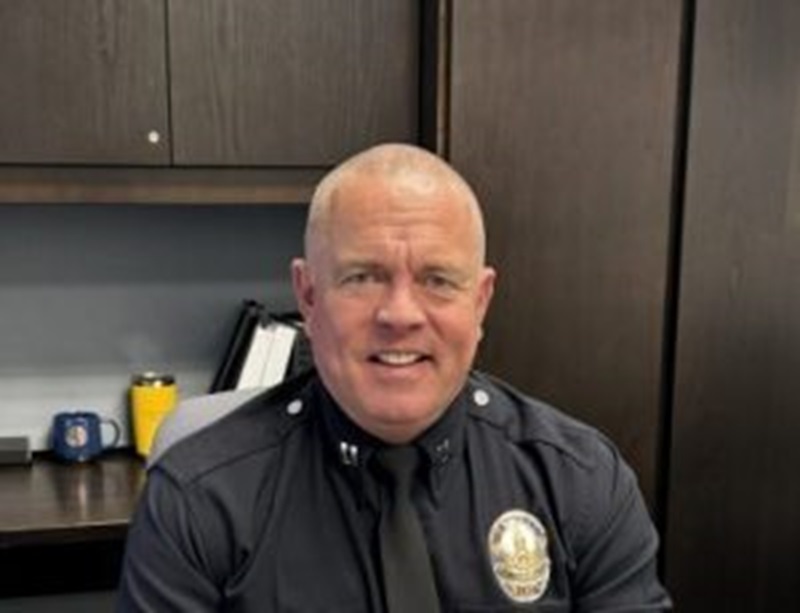The Los Angeles Police Department’s (LAPD) Olympic Police Station is celebrating its 15th anniversary this year and welcoming its seventh captain. The new leader of the Olympic division overseeing Koreatown is Captain Brian O’Connor, a 35-year police veteran.
O’Connor’s policing philosophy emphasizes numbers and relationships. Before joining the Olympic Station, he led the COMPSTAT unit, which analyzes crime data, and believes in accurate crime analysis and resource allocation based on statistics. He also refers to the community as his “customers,” explaining that working with them is crucial to the department’s continued service The Korea Daily met with O’Connor to hear about his philosophy and policing strategy.

How do you feel about your new assignment?
“During my first week on the job, I had an opportunity to attend the Chuseok celebration at the Koreatown Senior and Community Center and to meet many Korean American residents of Koreatown. The event was itself very interesting, and I’m grateful for their warm welcome.”
You are a 35-year police veteran.
“I started as a police communicator with the North Attleborough Police Department in Massachusetts in 1989 and joined the LAPD in 1999. My experience in both a small police department and the third-largest police department in the country has given me a unique perspective. Especially at COMPSTAT, analyzing data-driven crime trends to efficiently deploy resources was an invaluable experience. I believe this will be of great benefit to the Olympic division.”
How are you combating to improve public safety?
“Crime is something you have to deal with every day. I start each morning by reviewing a list of crimes that have occurred in the last 24 hours, provided by two COMPSTAT analysts. I have meetings to decide how to deploy patrol and detective teams, and then I meet with the LAPD’s West Division to explore ways to collaborate. I also gather input from residents through a survey called Blockwise to get a sense of community sentiment.”
What is Blockwise?
“Simply put, it’s a tool to see how residents are feeling about crime. As a captain, I can interact with residents directly, but I also use Blockwise to gather data to understand their concerns and deploy resources accordingly.”
What are the current major issues in Koreatown?
“The biggest issue is homelessness. It is primarily being handled by the mayor’s office because it’s a humane issue, and we are focusing more on violent crime. There have been nine homicides in Koreatown this year, which is relatively low compared to other neighborhoods. We’re also seeing positive changes, with robberies dropping from 49 to 33 in the last 30 days.”
What are the challenges that the division is facing?
“Recruitment is the biggest challenge. In the long term, we are focusing on our youth program, LAPD Cadet. I think it’s important to build an interest and passion for policing in our youth and treat them like family. Our youth services officers are actively working on it.”
How many officers are there?
“The Olympic station has about 200 police officers. We don’t have a separate classification for Korean-American officers, but we have the largest number of Korean-speaking officers in the LAPD. Many of our officers, especially those who were born and raised in Koreatown, volunteer to come here. They are truly hometown heroes.”
How do you plan to work with the community?
“I had the opportunity to work with Matt Blake when he was commander of the West LA Division in 2012. He was the first captain of the Olympic Police Station, and he demonstrated outstanding leadership. Working with him, I realized the importance of working with the community, which has become my philosophy. The residents are our customers. Just like a store cannot survive without customers, so do we. Thankfully, the Olympic station already has received a lot of interest and support from the Korean-American community, and this is a blessing to me. My goal is to maintain and further develop this relationship.”
The community is curious about Yong Yang’s case. How is the investigation progressing?
“Unfortunately, what I can say about this case is limited. However, if the family requests help, we will assist them in any way we can.”
BY SUAH JANG, HOONSIK WOO [jang.suah@koreadaily.com]

![Ex-South Korean President Accused of Trying to Trigger North Korean Attack Former President Yoon Suk Yeol leaves the Seoul Central District Court in southern Seoul after the pretrial detention hearing on July 9. [JOINT PRESS CORPS]](https://www.koreadailyus.com/wp-content/uploads/2025/07/0710-Yoon-100x70.jpg)


